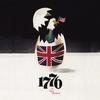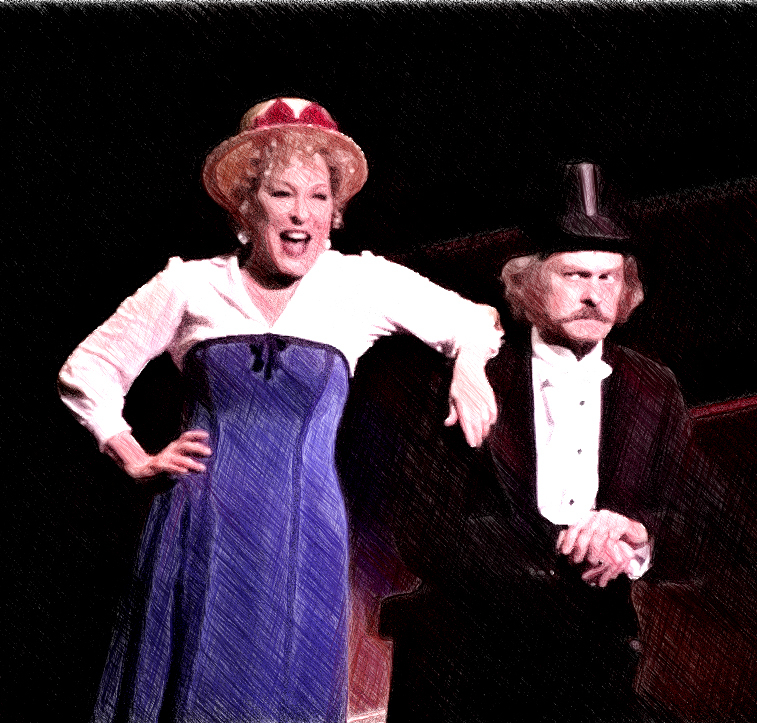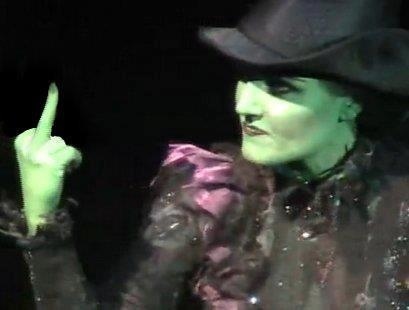A Black Eliza Doolittle
#25A Black Eliza Doolittle
Posted: 6/24/18 at 12:38am
CallMeAl2 said: "I think it would work fine until Eliza gets to Ascot and the Embassy Ball. The whole point of those scenes is that she is able to "pass" as upper class with some degrees of success. A woman of color would never pass, regardless of her diction.
Higgins whole point is that only language and graceful behavior separates class, but that is only true as long as we are talking about white people. Once race enters the picture, forget language. The entire premise crumbles.
It's hard to do a play where class matters and ask the audience to ignore the character's race."
In the current production, Freddie and his mother (both seen in the Ascot scene) are played by black actors. Karpathy, the Hungarian, is played by an Indian actor.
Rainah
Broadway Star Joined: 11/24/16
#26A Black Eliza Doolittle
Posted: 6/24/18 at 1:52am
There 100% were upper class, wealthy, cultured, black people in that day and age. Immigration has always been a thing, trade has always been a thing, they may not have been the default but it is certainly not impossible, or even improbably, that a black or otherwise poc Eliza would be accepted as upper class.
(And while it's tangental to the point, poisonivy2, while Alexander Hamilton was an immigrant from the Caribbean he was white. His father was from Scotland and his mother was Dutch. Their parentage are also recorded, they were both white as well)
#27A Black Eliza Doolittle
Posted: 6/24/18 at 2:36am
Manna Nichols, an Asian actress, played Eliza in Arena Stage's production a few years ago.
#28A Black Eliza Doolittle
Posted: 6/24/18 at 2:56amAudra McDonald should have played her in the 90’s or early 2000’s, i’m sad that she never did.
#29A Black Eliza Doolittle
Posted: 6/24/18 at 5:18am
CallMeAl2 said: "I think it would work fine until Eliza gets to Ascot and the Embassy Ball. The whole point of those scenes is that she is able to "pass" as upper class with some degrees of success. A woman of color would never pass, regardless of her diction.
Higgins whole point is that only language and graceful behavior separates class, but that is only true as long as we are talking about white people. Once race enters the picture, forget language. The entire premise crumbles.
It's hard to do a play where class matters and ask the audience to ignore the character's race."
The thing is, there is a long history of denigrating people of color based on the way they speak. For example, Black people who speak "like white people" are generally treated better by our society (think of comments like "wow! He's so articulate!"![]() . And the same was probably true to a certain extent in Victorian England. And of course both England and America have forced many Black communities into poverty, so it intersects with the question of class as well.
. And the same was probably true to a certain extent in Victorian England. And of course both England and America have forced many Black communities into poverty, so it intersects with the question of class as well.
I agree that some suspension of disbelief would be required. But in terms of the themes and message of the show, I think adding a racial element would/could only deepen the impact of the story.
#30A Black Eliza Doolittle
Posted: 6/24/18 at 1:28pm
I feel like there's some discrepancy regarding the topic...
Some folks are talking about changing Eliza Doolittle (the character) to be a woman of color when portrayed by an actress of color, and others are speaking about the character being played by a woman of color (color-blind casting). Those are two very different options.
Can an actress of color play the role? Of course! (I would also have loved to have seen/heard Audra McDonald in the role.)
Should the character be changed to be a woman color when portrayed by an actress of color (in regards to this show, as scripted)? I don't think so.
I'm not a woman of color, but just based on some of the comments posted here (some observant, some patently false), I think that changing the character could be viewed as offensive.
#31A Black Eliza Doolittle
Posted: 6/24/18 at 2:37pm
Olney Theatre in the DC area (South Maryland) had a "black Eliza Doolittle" last year. Brittany Campbell was marvelous in the part. (She wasn't helped however by a production that made questionable choices: they moved the time from Edwardian England to 1921, they had the most god awful ascot costumes and the director staged one of the stupidest endings to the show I have ever seen.)
#32A Black Eliza Doolittle
Posted: 6/24/18 at 9:04pm
John Adams said: "I feel like there's some discrepancy regarding the topic...
Some folks are talking about changing Eliza Doolittle (the character) to be a woman of color when portrayed by anactress of color, and others are speaking about the character being played by a woman of color (color-blind casting). Those are two very different options.
Can an actress of color play the role? Of course! (I would also have loved to have seen/heard Audra McDonald in the role.)
Should the character be changed to be a woman color when portrayed by an actress of color (in regards to this show, as scripted)? I don't think so.
I'm not a woman of color, but just based on some of the comments posted here (some observant, some patently false), I think that changingthe charactercould be viewed as offensive."
I'd be curious to know if you found my comments "observant" or "patently false," and if it's the latter, I'd love to hear your reasons.
I agree it's important to note that distinction in this conversation. As I said, my perspective is coming from having seen this brilliant production of Pygmalion, where the race of the character was changed very effectively. Maybe the same could be done in My Fair lady with a Black woman, or maybe not. And certainly if it were done poorly, it could absolutely be offensive. But having seen that production of Pygmalion, I'm inclined to say in can be done, but only by a smart director and a smart actress.
But even if you're right, and it couldn't/shouldn't be done, I think there is a middle ground between changing the race of the character, and ignoring the actress' race entirely. And I think it's important to find that middle ground, because it's very difficult in our society to ignore race entirely.
I think Great Comet is a good example. Many refer to it as "color blind" casting, but if you read Dave Malloy's notes on the lyrics, you'll see he was very much aware of Denee's race in the role. The main example I'm thinking of is how they agonized over whether the line about her being Anatole's "slave" should be kept in or not, given the potentially offensive implications of having those words spoken by a Black actress onstage, regardless of whether we are meant to see the character as Black.
And especially with a story like My Fair Lady, which deals with class and language in such complex ways, I think it would be misguided to try to completely ignore race when a WOC is playing Eliza.
VintageSnarker
Broadway Legend Joined: 1/30/15
#33A Black Eliza Doolittle
Posted: 6/24/18 at 9:32pm
John Adams said: "I feel like there's some discrepancy regarding the topic...
Some folks are talking about changing Eliza Doolittle (the character) to be a woman of color when portrayed by anactress of color, and others are speaking about the character being played by a woman of color (color-blind casting). Those are two very different options.
Can an actress of color play the role? Of course! (I would also have loved to have seen/heard Audra McDonald in the role.)
Should the character be changed to be a woman color when portrayed by an actress of color (in regards to this show, as scripted)? I don't think so.
I'm not a woman of color, but just based on some of the comments posted here (some observant, some patently false), I think that changingthe charactercould be viewed as offensive."
Good point about the distinction between the two things being discussed. Yes, in general, I think it's totally fine to just cast any actor of color and not comment on it unless there's something offensive or wildly contradictory in the text. For Eliza specifically, I think there's too much work to be done to make it a color conscious casting choice where something about the portrayal or direction is altered to fit the casting. But I was open to it (if incredibly wary) when it came to Carousel, though it seems like that is not in fact what happened with that production. It depends on the show. Some roles are more open to colorblind casting while some allow for color conscious casting.
#34A Black Eliza Doolittle
Posted: 6/25/18 at 9:57am
poisonivy2 wrote: "Alexander Hamilton was also able to "pass.""
Alexander Hamilton was lily-white, with a Scots father and a French-Anglo mother. He didn't "pass," he "was." He also spent most of his youth being raised by, or in the protection of, relatively wealthy white property owners.
It's been noted before, but this is a very dismaying aspect of the success of Hamilton - entertaining as it is, it isn't history, but many audience members seem to think that it is, and believe that they've learned some historical facts.
#35A Black Eliza Doolittle
Posted: 6/25/18 at 10:08amAny woman can play Eliza if they’re talented enough. I think all the talk of whether or not it would be “appropriate” within the text will ultimately end up in people slyly coming to the conclusion that only white actresses should get the chance to play the part. If a black actress wants to play the role and has the ability to, then why argue about it?
#36A Black Eliza Doolittle
Posted: 6/25/18 at 10:49am
newintown said: "poisonivy2 wrote: "Alexander Hamilton was also able to "pass.""
Alexander Hamilton was lily-white, with a Scots father and a French-Anglo mother. He didn't "pass," he "was." He also spent most of his youth being raised by, or in the protection of, relatively wealthy white property owners.
It's been noted before, but this is a very dismaying aspect of the success ofHamilton- entertaining as it is, it isn't history, but many audience members seem to think that it is, and believe that they've learned some historical facts."
Actually if you read the Chernow biography his dad is of questionable origin and in his lifetime there were plenty of racial slurs thrown out there against him, including from John and Abigail Adams.
#37A Black Eliza Doolittle
Posted: 6/25/18 at 10:57am
I did read the Chernow, and although he likes to hypothesize, there is no proof to his claims of shady paternity. (And anyway, the man Chernow supposes "could have been" Hamilton's father was also white.)
Historian Willard Sterne Randall (whose biography of Hamilton is much more reliable than that of Chernow, who was writing for an audience seeking entertainment more than enlightenment) wrote in the Boston Globe of Chernow's book "Chernow, in his first foray into the 18th century, leans too heavily on outdated antiquarian sources as a substitute for deep archival research. Not at all at home in the foreign country of that century, he depends too much on the kind of history served up by amateur old-house historians and innkeepers. As a result, his account of Hamilton's early life in the Caribbean, for example, blurs centuries and reads like an old-fashioned Errol Flynn-style bodice ripper. A deeper problem is one of proof. Chernow all too frequently uses speculative constructions such as ''must have," ''it seems," ''one can hazard an educated guess." There are limits to the degree of supposition in history and biography that are stricter than those in historical fiction. It is a line Chernow crosses, imagining more than he can prove."
http://archive.boston.com/ae/books/articles/2004/05/02/hamilton_a_flawed_portrait/
#38A Black Eliza Doolittle
Posted: 6/25/18 at 11:12am
But what about the contemporary slurs against him?
John Adams called him a "creole bastard" which suggests that he might have looked mixed-race.
Abigail Adams went even further: " a vain, ambitious man aspiring to govern when it was his duty to submit."
Granted these two people did not like Hamilton but in that day and age I doubt they'd make slurs about his race unless they had evidence.
#39A Black Eliza Doolittle
Posted: 6/25/18 at 11:19am
You'll notice in the link I provided that Adams is quoted as calling Hamilton ''the bastard brat of a Scots peddler." And anyway, Adams knew nothing of Hamilton's life - he didn't meet him until he came to America, and he disliked him intensely. So it appears that he would call him anything that came to mind.
Your Abigail Adams quote says nothing about race (it seems to be more about class), so I'm not sure how it's relevant to this point.
Lin-Manuel Miranda and Ron Chernow's fictionalizing aside, Alexander Hamilton was white. There is absolutely no proof otherwise. I know facts are more boring than fiction, but they are what they are.
ScottyDoesn'tKnow2
Broadway Legend Joined: 1/22/14
#40A Black Eliza Doolittle
Posted: 6/25/18 at 1:20pm
I think a good teacher, yeah this is America...I know, would use the musical Hamilton as a catalyst to have a deeper discussion about historical accuracy and what really happened. I know that's a pretty common teaching tool that is used when people read biographies or watch movies/TV versions of historical events.









